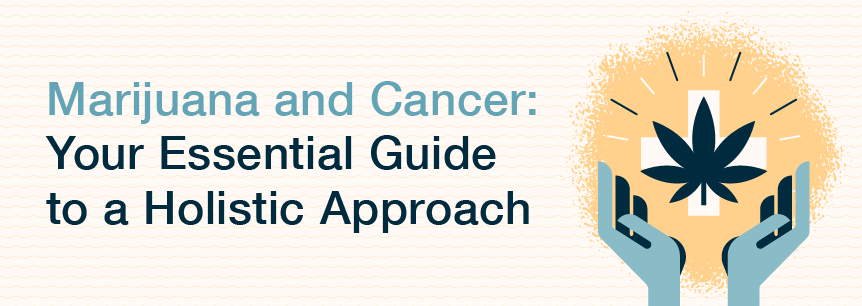Forget the simple answers you may have heard about cannabis and mental health. For too long, the conversation around cannabis has been overshadowed by recreational use, often sidelining its beneficial interactions with the body, and interestingly, with prescribed medications.
But what if we’re overlooking vital discussions about how it interacts with antidepressants?
Antidepressants remain one of the most commonly prescribed classes of medications worldwide, with millions relying on them to stabilize their moods, combat depression, anxiety, and other related conditions. Given cannabis’ therapeutic benefits, it’s natural for individuals to wonder if and how cannabis and antidepressants can coexist.
While some users report experiencing enhanced symptom relief or a reduction in medication side effects, this possibility should be approached with caution.
The body processes cannabis compounds and antidepressants in complex ways. But they often rely on the same liver enzymes. This shared metabolic pathway can lead to medication interactions, which could potentially increase antidepressant levels in your system and escalate the risks of side effects. Moreover, cannabis may sometimes trigger or worsen some symptoms, which could potentially undermine the very stability that antidepressants aim to provide.
In this guide, we will explore the latest research behind combining cannabis and antidepressants. We will look into how each works, the potential benefits, risks involved, and the considerations for safer use.
What Are Antidepressants?
Antidepressants are medications commonly prescribed to treat several types of depression (a mood disorder that often involves a lasting sense of emptiness, disinterest in activities, and disruptions in daily functioning). However, healthcare providers may also use them to manage other mental health or neurological conditions, such as some types of chronic pain, insomnia, or migraines.
The most common types include:
- Selective Serotonin Reuptake Inhibitors (SSRIs) such as citalopram, dapoxetine, escitalopram, fluvoxamine, paroxetine, sertraline, and vortioxetine.
- Serotonin-Norepinephrine Reuptake Inhibitors (SNRIs) like desvenlafaxine, duloxetine, levomilnacipran, and venlafaxine.
- Norepinephrine and Dopamine Reuptake Inhibitors (NDRIs) such as bupropion, dexmethylphenidate, and methylphenidate.
- Serotonin antagonist and reuptake inhibitors (SARIs) such as nefazodone, trazodone, and vilazodone
- Monoamine Oxidase Inhibitors (MAOIs) like isocarboxazid, phenelzine, tranylcypromine, and selegiline.
Serotonin, norepinephrine, and dopamine are neurotransmitters in the brain that regulate mood, sleep, and emotions. After delivering signals between brain cells, they are reabsorbed by the cells that released them in a process called ‘reuptake’. SSRIs, SNRIs, and NDRIs work by blocking this reuptake process, and through this action, they successfully increase the availability of serotonin, norepinephrine, and dopamine, which can lead to a stable and elevated mood.
MAOIs, on the other hand, target the monoamine oxidase enzyme, which breaks down excess neurotransmitters – serotonin, norepinephrine, and dopamine. By inhibiting this enzyme, MAOIs allow for higher concentrations of these neurotransmitters in the brain.
Some Benefits of Using Cannabis Alongside Antidepressants
Reduction of Antidepressant Side Effects:
Users suggest that cannabis could help reduce certain side effects like nausea, headaches, loss of appetite, insomnia, sexual side effects, etc.
Potential for reduced antidepressant dosage:
Some users claim that cannabis allows them to reduce their prescribed antidepressant dosage. This should, however, only be considered under strict medical supervision.
Modulation of neurotransmitters:
Cannabidiol (CBD) may interact with serotonin receptors and modulate serotonin transmission, which potentially contributes to mood regulation. Both CBD and tetrahydrocannabinol (THC) might also increase the activity of serotonin and dopamine in the brain.
Synergistic effects:
Preclinical animal researchers have shown that CBD may have effects similar to antidepressants. This means that they could act in synergy with some antidepressants, especially those affecting serotonin, to give therapeutic results.
Risks of Combining Cannabis and Antidepressants
Both cannabis compounds (e.g., THC, CBD, etc.) and antidepressants interact with the brain to improve emotional balance. However, when used together, they can interact in ways that aren’t always predictable or clinically relevant.
A 2021 study shows that CBD can mildly influence the way the body metabolizes antidepressants like sertraline, fluoxetine, and mirtazapine while having a stronger effect on citalopram.
Findings from a 2020 review suggest that using CBD-containing products may increase the effects of the antidepressant, bupropion. This may affect how the medication works or increase the risk of side effects.
Here are some effects you should be aware of when combining cannabis with antidepressants.
Serotonin Syndrome:
This is a severe condition caused by excessive serotonin levels. Some of its symptoms are very similar to those of a THC overdose. It is unlikely that THC alone will cause serotonin syndrome; however, case reports of combining high-THC with serotonergic medications that cause this do exist. Sometimes, it is simply a nonfatal THC overdose that is misrecognized.
Interactions of Liver Enzymes:
Cytochrome P450 liver enzymes process both cannabis and antidepressants. Cannabinoids like THC, CBD, and more may interfere with these enzymes, which could lead to unpredictable drug levels, enhancing side effects such as dizziness, nausea, or reducing the effectiveness of ongoing medication.
Emotional flattening:
Emotional blunting is associated with long-term SSRI and cannabis use (especially high-THC strains). When combined, these effects may worsen, and this is particularly concerning in individuals recovering from major depressive disorders, where engagement and emotional range are vital to healing.
Increased anxiety or panic (with THC):
Excess THC can cause paranoia, panic attacks, or anxiety in some individuals, especially in high doses. Pairing this with an antidepressant may take weeks to stabilize, which could destabilize emotional regulation further.
READ: Can I Use Medical Marijuana Instead Of Antidepressants
What to Consider Before Mixing Cannabis With Your Antidepressants
While some perceived benefits exist and are reported by some users, the scientific evidence to support them, especially in the context of taking them with antidepressants, is still in its early stages. However, the effects of combining cannabis with antidepressants can vary widely from person to person due to several key factors.
Individual biology, the specific cannabis strain used, route, the potency level of the said strain, the dosage of both cannabis, and the prescribed antidepressant are some of these factors. Age, metabolism, and sex differences can also play a significant role.
The potential for drug interactions like altered metabolism of antidepressants and the risks of serious adverse effects like serotonin syndrome mean that any decision to use cannabis to reduce antidepressant side effects should be made in close consultation with a healthcare professional.
They can provide personalized guidance and ensure the safest way possible to manage depression and its side effects.
Antidepressants to Approach With Extreme Caution (High Potential Risk)
Monoamine Oxidase Inhibitors (MAOIs):
They have a strong potential for unsafe interactions with a lot of substances and medications, and so, combining them with cannabis can increase the risks of serious side effects like a severe rise in blood pressure and serotonin syndrome.
Selective Serotonin Reuptake Inhibitors (SSRIs) and Serotonin-Norepinephrine Reuptake Inhibitors (SNRIs):
The combination of these antidepressants and cannabis runs a risk of causing serotonin syndrome. This is because they can affect serotonin levels and cause an excessive buildup, which could lead to symptoms like agitation, rapid heart rate, and seizures.
Cannabis can also alter the liver enzymes that metabolize these drugs, potentially leading to higher levels of antidepressants in the body and an increase in side effects.
Antidepressants with low potential Risks
Norepinephrine and Dopamine Reuptake Inhibitors (NDRIs):
A different set of liver enzymes metabolizes bupropion, the main NDRI, compared to SSRIs, and this suggests a lower risk of developing severe conditions like serotonin syndrome. However, bupropion and cannabis may lower the seizure threshold in some individuals. Healthcare professionals advise caution, especially with higher doses.
IN CONCLUSION
While both cannabis and antidepressants affect brain chemistry, combining them could lead to a complicated set of effects, varying from individual benefits to unwanted or even harmful side effects.
The decision to use cannabis while taking antidepressants is a serious medical consideration that should not be made without direct guidance or ongoing supervision of a healthcare professional.
Given the unpredictable nature of these side effects, it’s important to establish an open and honest communication with your doctor. Due to individual peculiarities, they can provide a personalized approach and stand in close watch to monitor any adverse effects that may arise, to help ensure your safety.
FREQUENTLY ASKED QUESTIONS
Can you smoke while on antidepressants?
Combining antidepressants and any form of cannabis without direct supervision from medical professionals is not advised. The method of consumption could influence the onset of the effect, but the interactions between antidepressants and cannabis remain.
What medications should you not take with cannabis?
Antidepressants like MAOIs, SSRIs, SNRIs, and tricyclic antidepressants carry more health risks when combined with cannabis, but NDRIs have lower risks of causing severe health conditions.
It is important to note that no antidepressant is 100% safe to take alone or with cannabis without any potential risks. Your provider will help set expectations regarding the timing of effects and the duration of treatment based on the antidepressant at hand.
Does fluoxetine interact with cannabis?
Yes, fluoxetine interacts with cannabis. It falls under the SSRI class of antidepressants. Fluoxetine and cannabis both influence serotonin levels in the brain, which raises the risk of increased serotonin levels.
Moreover, some compounds in cannabis, like CBD and THC, can inhibit the liver enzyme responsible for breaking down (metabolizing) fluoxetine. This leads to higher concentrations of fluoxetine in the bloodstream and increasing the risks of its side effects.
Can you take Lexapro with weed?
It is not advisable to take lexapro with weed without crucial discussions and direct monitoring by a doctor. Lexapro is an SSRI, which means that it can increase serotonin levels in the brain. Combining them can also increase lexapro levels in the bloodstream, which could increase the risks of side effects.






